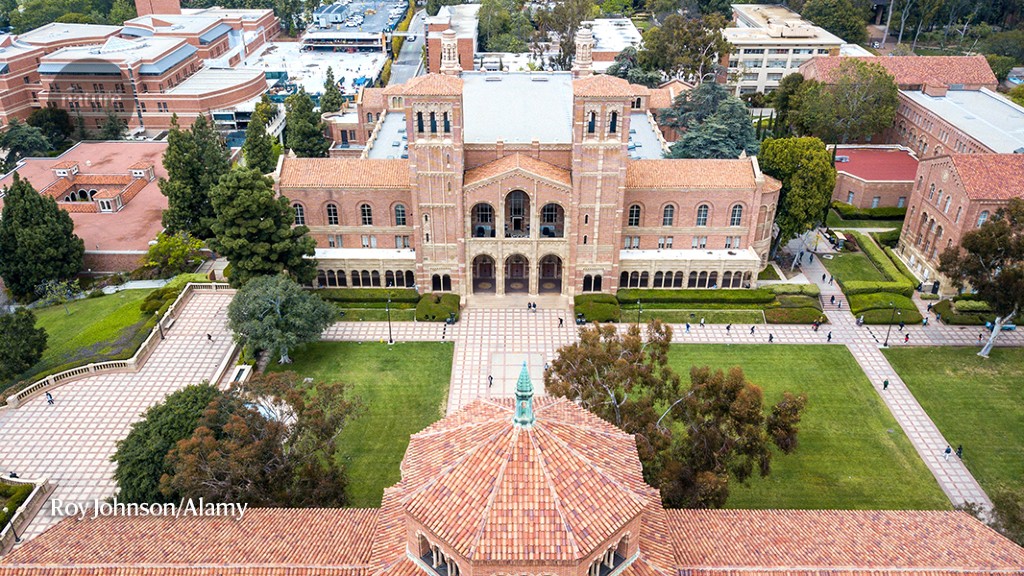Professor Priyanga Amarasekare, former UCLA faculty member and student mentor: Her experiences with the UCLA Ecology Department in September 2021
The scientists are concerned about whether the suspension will affect her students, whether her federally funded research will be disrupted, and whether her time-sensitive experiments can be found again.
Nature spoke to several former students and faculty members who defended Amarasekare in administrative hearings in September 2021. They all thought that she was targeted for speaking out because she was against the discrimination she saw in the department. In particular, they said, she expressed her feelings regarding her experience at UCLA on a departmental e-mail listserve created to discuss issues of racism and discrimination in the aftermath of the killing of George Floyd.
That is what caused her to get into trouble. She ended up being critical of everyone in the department, even though she had good reason to do so. He joined other students in supporting her. Vaz says that they demanded some explanation but didn’t get feedback.
Peter Kareiva, a former UCLA faculty member who spoke on Amarasekare’s behalf during the administrative proceedings, calls her a brilliant scientist as well as a terrific teacher and student mentor. Kareiva witnessed Amarasekare raise uncomfortable issues and challenge internal policies in faculty meetings. He says she might have made mistakes in terms of “facilitating harmony” among fellow faculty members, but that her goal was always to improve the department.
In March 2022, a committee at the University of California, Los Angeles (UCLA), found that ecologist Priyanga Amarasekare had breached the faculty code of conduct, most notably by violating confidentiality and procedural rules when criticizing her colleagues and department policies, according to documents obtained by Nature. The committee recommended she be given a letter of censure and five years of probation. UCLA chancellor Gene Block hit her with a one-year, unpaid suspension that meant she couldn’t communicate with her students, as well as other harsher penalties.
Nature received a letter of censure, but the documents they received did not contain accusations of academic misdeeds or illegal behavior.
Most current students declined Nature’s requests for interviews, but one, speaking on the condition of anonymity out of fear of retaliation, described a persistent state of anxiety and confusion because of their treatment by the department, and said they no longer feel comfortable there.
UCLA declined to discuss the contents of the documents and communications seen by Nature, or the arguments of critics, stating, as it has previously, that privacy rules prevent it from elaborating on personnel matters. Block refused to answer questions about his handling of the case.
In a statement, however, the university raised questions about one of the documents obtained by Nature, a report from the hearing committee that was redacted to remove specific names, allegations and testimonies. The unauthorized release of such a report could compromise the confidentiality of witnesses and presenting incomplete and misleading characterization of proceedings. The statement was made public. The university supports freedom of expression and does not condone reprisals.
In August of 2020, she sent an e-mail to the group detailing that her department practices homogeneity, exclusion and suppression of dissent.
On 25 March last year, a few weeks after the hearing committee issued its decision, Amarasekare argued in a letter to Block that the process had been flawed. A fellow faculty member of colour said that they too had experienced discrimination in the department. She also sent him an independent review, conducted in 2014, that found bias in the department’s denial of a promotion she sought in 2013. Nature identified a scientist on that 2014 panel, who spoke on condition of anonymity and confirmed Amarasekare’s account. “We were absolutely flabbergasted”, the scientist says of the panel. The process of reviewing her promotion “was incredibly biased and very dishonest, and we asked for some kind of censure for the department”.
Some observers say the case speaks to a broader problem in academia. Although professors have a right to complain of discrimination without fear of reprisal, universities can argue that whistle-blowers are trouble makers who don’t follow the Code of Conduct.
UCLA declined to discuss the findings of the 2014 report, but said in its statement that academic promotions are based “strictly on evaluation of teaching, scholarly research, and service — not disciplinary or grievance activities”.
Johnson and ecology department leaders ultimately advised the graduate students — two of whom are in their fifth year and preparing to graduate — to find new advisers and dissertation projects. The student spoke to Nature and said that they feel abandoned because they are unable to publish their research or ask for letters of recommendation. Johnson did not respond to a request for comment.
Kurt Anderson, an ecologist at the University of California, Riverside, and one of the students’ external advisers, sought to intervene with a compromise solution that would allow the students to interact with Amarasekare through an intermediary. “We pushed on that, but it was always rebuffed in the strongest of terms,” he says.
The graduate students are stuck five months after the lab member wrote to the chancellor. “Nothing, absolutely nothing, has changed.”
